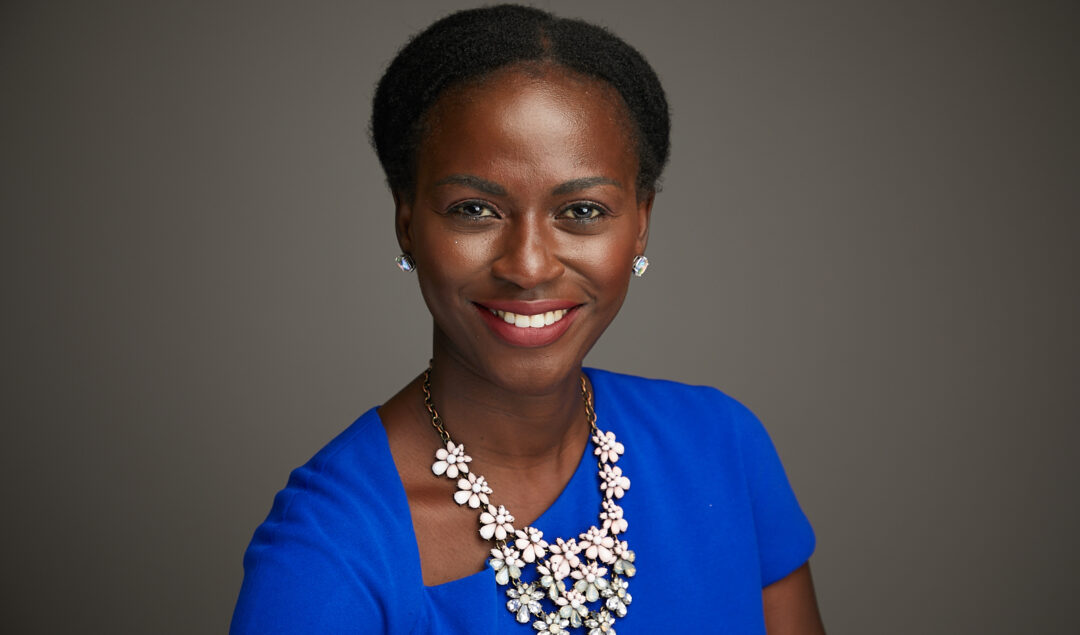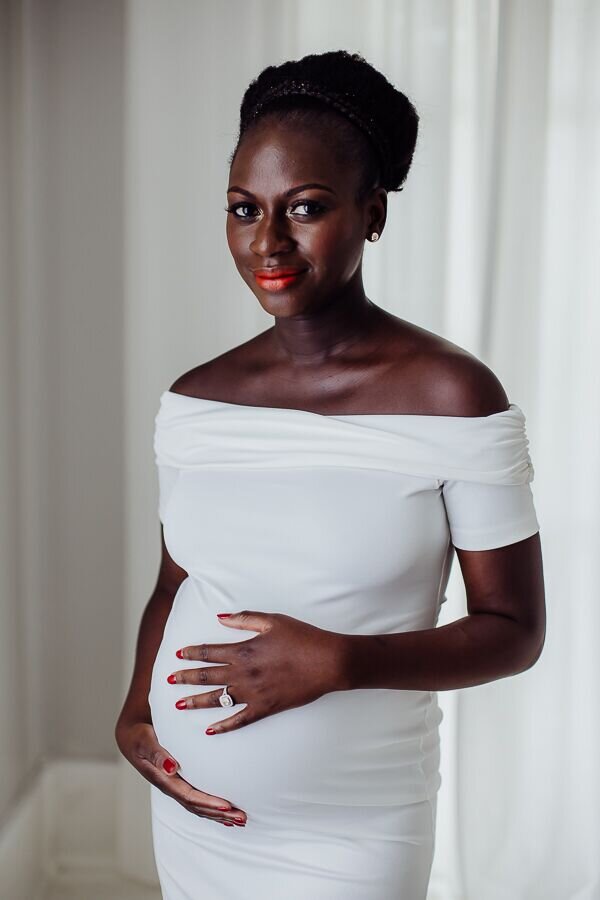Interview: This Black Labor Nurse Launched A Pregnancy App To Support Black Mothers – Here’s Why

A damning body of research shows how Black women go unseen and unheard as they navigate the healthcare system with celebrities like Beyoncé and Serena Williams also bringing attention to the risks of childbirth for Black mothers by sharing their own personal stories.
Doctors have spent decades trying to understand what makes African-American women so vulnerable to losing their babies. Now, there is a growing consensus that racial discrimination experienced by Black mothers has much to do with it.
The stark figures, which revealed Black women are three times more likely to die from pregnancy-related causes than white women, have raised serious questions
One woman trying to change things is Layo George.
Working as a labor and delivery nurse for years in a small town in the Midwest, Layo has seen a lot. She’s previously spoken about how she’d seen just how serene, supportive and luxurious one’s birthing experience could truly be – for white women at least.
“When you look at the population of that small town, they were mostly white women giving birth there and the type of healthcare that was happening was just amazing to me,” she told ESSENCE earlier this year. “From the delivery room, patients had a view of a nearby lake. Every new mom met with a lactation specialist before they were released. Massages were complimentary. Nurses were trained to help new moms breastfeed. It was a safe space.”
That’s why she launched Wolomi, the pregnancy companion created by a woman of color, for women of color.

It’s a digital community that offers support to women of color to improve maternal health outcomes. Membership to Wolomi gives you access to maternal health experts, events, and a community of amazing women.
Layo’s childhood planted the seed for Wolomi. Growing up in Nigeria and DC she witnessed the joy of community support when someone was having a baby – from relatives to healthcare workers – everyone would step up. But when she moved to America she realized standard practice in Africa wasn’t the same everywhere.
The goal and mission of Wolomi is to provide resources and guidance that support black birthing people to own their perinatal journey, alongside others that look like them and share in their experience.
We sat down with the founder and nurse about what’s like running such a purpose-driven tech initiative and the realities of being a CEO
How are you juggling the different roles you have as a CEO, nurse, mother, and so forth?
I’m still working on that. To be honest, one of the things that I have taken seriously is therapy. I’ve been very happy with the Google startup accelerator that I’m on as they have offered us therapy with a very great organization.
My therapist and I have been trying to understand what success means to me and sometimes that means not going as fast as everyone else.
I’ve found that it’s also important to understand things like: When is your energy high? When is your energy low? When are you going to prioritize certain things?
I’m not gonna lie, I’ve found there are a lot of physical side effects of being a mom, a partner, and a CEO of a startup – it’s hectic. So now I try to go on walks, go to therapy and simply pace myself.
Challenges?
So I don’t have experience in this [running a start-up] – there’s really nobody in my family with experience in this. I was leading my IT team because I had a little bit of IT experience but even that experience wasn’t enough. Even though we had a developer – I didn’t know how to hold them accountable because I didn’t know what it was supposed to look like.
I think one of the challenges for me was building a team.
I didn’t have the money to hire and I didn’t know what to look for. Away from that when I first started my MVP – I just didn’t know certain things like are we taking too long? I mean, what is the timeline? What is this supposed to be? So that was a challenge just navigating the whole landscape of building a company.
I think another challenge is just not knowing what’s next? It’s not like I’ve done this before and it’s all about trying to find the right sources to know what to do next.
Wolomi is part of several business accelerators including Google for Startups Founders Academy, CVS Accelerator, & the Mass Challenge Accelerator – how did being part of Google help you?
Google’s accelerator really helped me figure out how to sell. For the first few months – we went through a very rigorous sales training, where at the end, you have to pass an exam where you get a sales certification.
One of the mentors that they paired me up with said to me that right now I’m at the stage of the company where I need people to build me up and not drain me. So yes, it’s good that a candidate has the capability because they obviously need to have the skill sets and match the position but they also need to be someone who can self-start and you have a passion for the problem we’re tackling.
More about the CEO
As a quality improvement specialist at the District of Columbia Primary Care Association, Layo led 15 healthcare centers through value-based practice transformation and oral health primary care integration.
She also served on the leadership team at Mary’s Center’s Capital Clinical Integrated Network that created a citywide care management and coordination program targeting over 170,000 Medicaid high utilizers—the first population health program in Washington, D.C. funded by the federal government innovation center.



